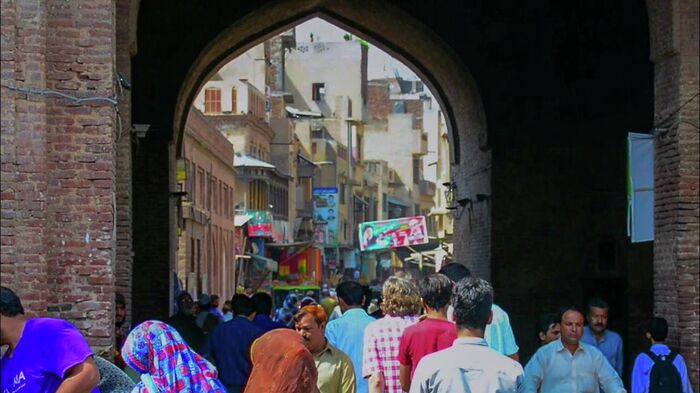“Take me home, Mill Road”
Our columnist Eliane Thoma-Stemmet travels to Mill Road to find out whether it lives up to its reputation as a multi-cultural melting pot.

As Cambridge’s most vibrant and diverse high street, Mill Road has a big reputation to uphold. But does it continue to live up to that reputation today?
To the untrained eye of a wee fresher, Mill Road can seem like an unchanging, stable microcosm of culture, a reliable place for recovery from the general grandeur that suffocates central Cambridge. As the brown child of first-generation immigrants from Germany and South Africa, a regular dose of Mill Road was prescribed to me when I first arrived as a wholesome remedy for those craving a reminder of reality outside the university, and a feeling of going home to my own melting-pot community.

Talking to Mill Road’s high street merchants, I heard different realities from each of them. There was optimism and despair, comfort and anger, voiced by different faces of the community. While the street used to be filled exclusively with small merchants, greengrocers, butchers and the like, one shopkeeper expressed anger that persistently rising rents had driven countless small shops, which once characterised Mill Road, into packing up. “It’s becoming a food place. The old shops can’t last anymore.”
A Costa has tried to make itself at home on Mill Road, although how well it fits into the street is questionable, as it is immediately noticeable that it’s the only corporation on its side of the road.


This begs the question of whether there is a detectable atmosphere of anticipation for the future of Mill Road among its community. The majority of shopkeepers I talked to were not convinced that the public was apprehensive. “People are not worried”, they told me. Costa and Sainsbury’s have indeed sprung up, the latter replacing a long-standing greengrocers keenly remembered by other shopkeepers, and the likelihood seems high that the rate of chain supermarkets and cafés will only increase in years to come.
Even so, it’s not the case that every move-in is cause for concern for the community. I came across several independent cafés, such as Tom’s Cakes, which have also moved to Mill Road in the last two years, having been attracted to the buzz of the high street. “It’s the best community out there”, Matt from Tom’s Cakes told me, a feeling reiterated by all of the shopkeepers I had spoken to. Perhaps to assume that change to the makeup of businesses is threatening to its history, rather than part of the natural – and inevitable – evolution of every high street, is a misconception to be avoided.
Or perhaps this would be naïve? At Cham restaurant, a manager warned that gentrification is a ‘silent change’. Even if changes happen slowly and are met without much protest, their impact is still detectable. Already, some residents sense a divide between the two sides of the Mill Road bridge, feeling that the far side of the bridge suffers less from issues of gentrification and is more ‘flourishing’.

The Mill Road Winter Fair, and ongoing projects to tackle rising issues of traffic congestion and noise pollution, are marks of the continued vibrancy and solidarity of the community. Mill Road cafés generally use bread from Mill Road bakeries. One woman spoke of the mutual trust and cooperation of the businesses, which has built up over years, as she remarked, “We look after each other.”
Going to Mill Road in search of a melting pot that might remind me of my own community in Leeds, I didn’t set out with too many expectations of feeling at home, aware that every community is unique in its diversity. As a student living outside of Mill Road, I was conscious that I might feel like a tourist there. Clearly, finding somewhere that reminded me of ‘home’ would be a tall order, but in all my conversations with people for whom it was home, the sense of pride in the unity of their community radiated through speech and body language, and their welcoming approach to new members of the community was asserted for me by those who had moved to Mill Road in recent years and already felt it had “the biggest community feel”.
The road may have changed over time, a little for the better and a little for the worse, but its powerful dedication to its community and the determination to protect its cultural diversity and distinctive character should leave no one in doubt that Mill Road deserves nothing less than its reputation as one of the best places in Cambridge.
 Comment / Cambridge students are too opinionated 21 April 2025
Comment / Cambridge students are too opinionated 21 April 2025 Interviews / Meet the Chaplain who’s working to make Cambridge a university of sanctuary for refugees20 April 2025
Interviews / Meet the Chaplain who’s working to make Cambridge a university of sanctuary for refugees20 April 2025 News / News in brief: campaigning and drinking20 April 2025
News / News in brief: campaigning and drinking20 April 2025 Comment / Cambridge’s tourism risks commodifying students18 April 2025
Comment / Cambridge’s tourism risks commodifying students18 April 2025 Comment / Cambridge’s gossip culture is a double-edged sword7 April 2025
Comment / Cambridge’s gossip culture is a double-edged sword7 April 2025






